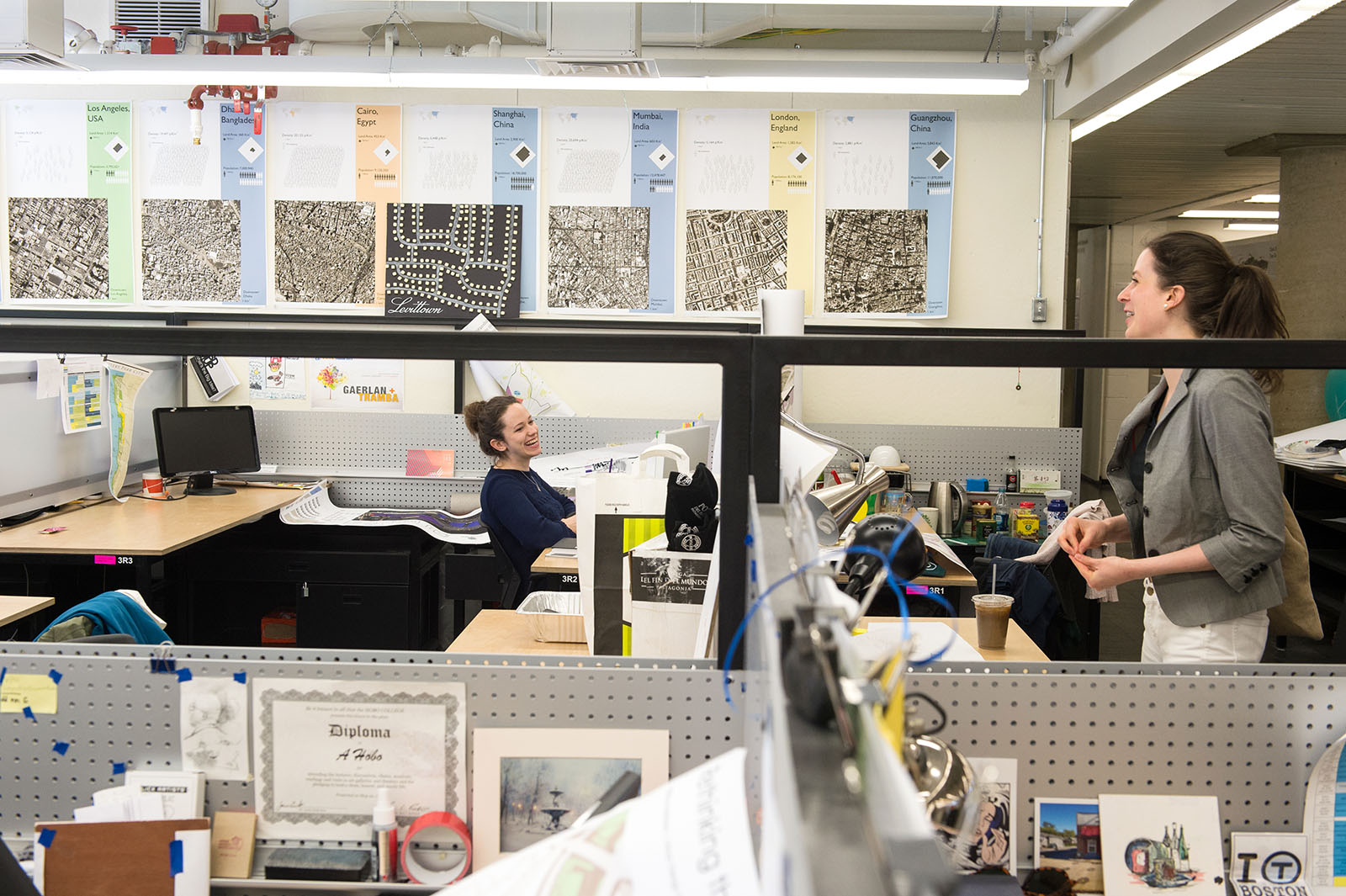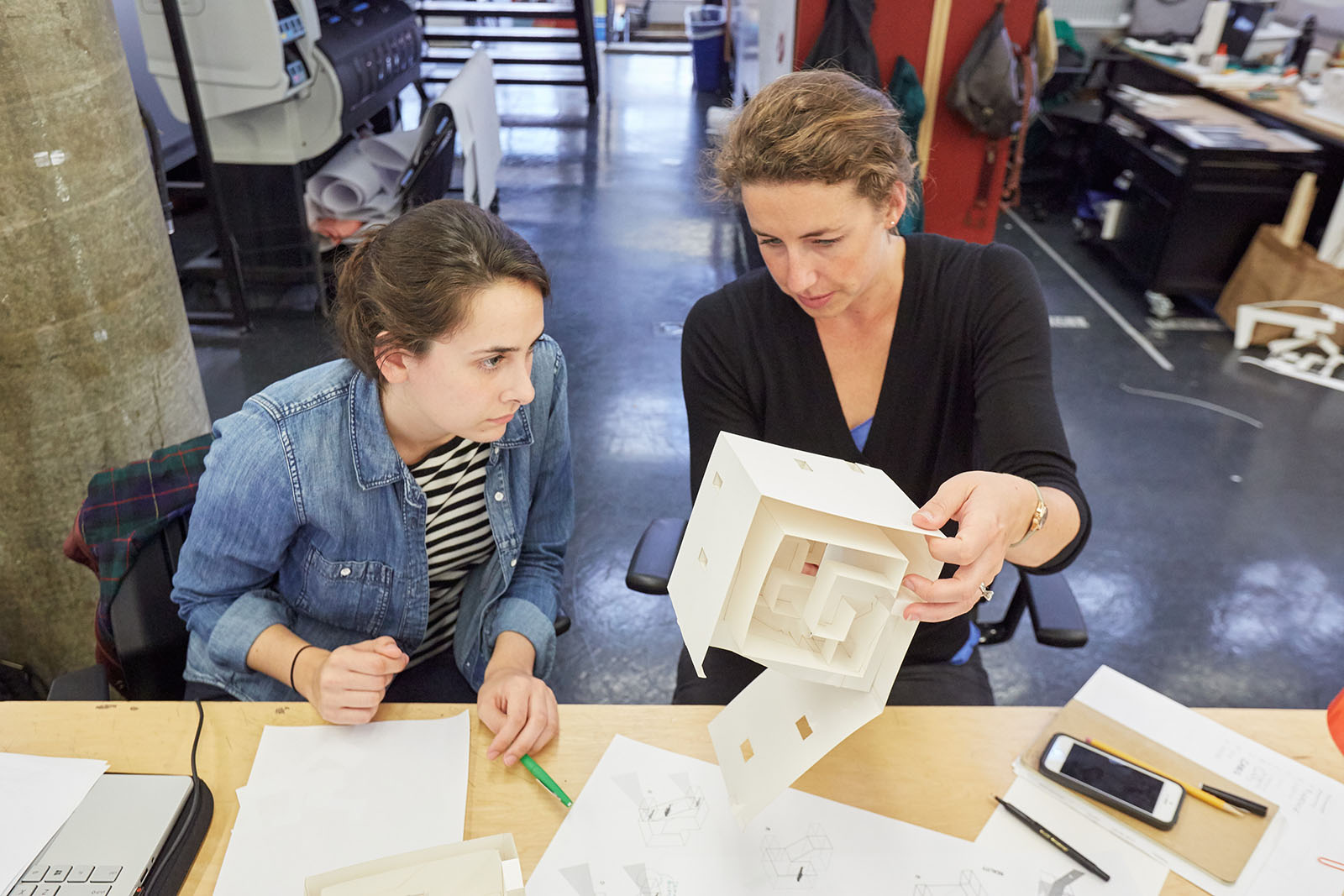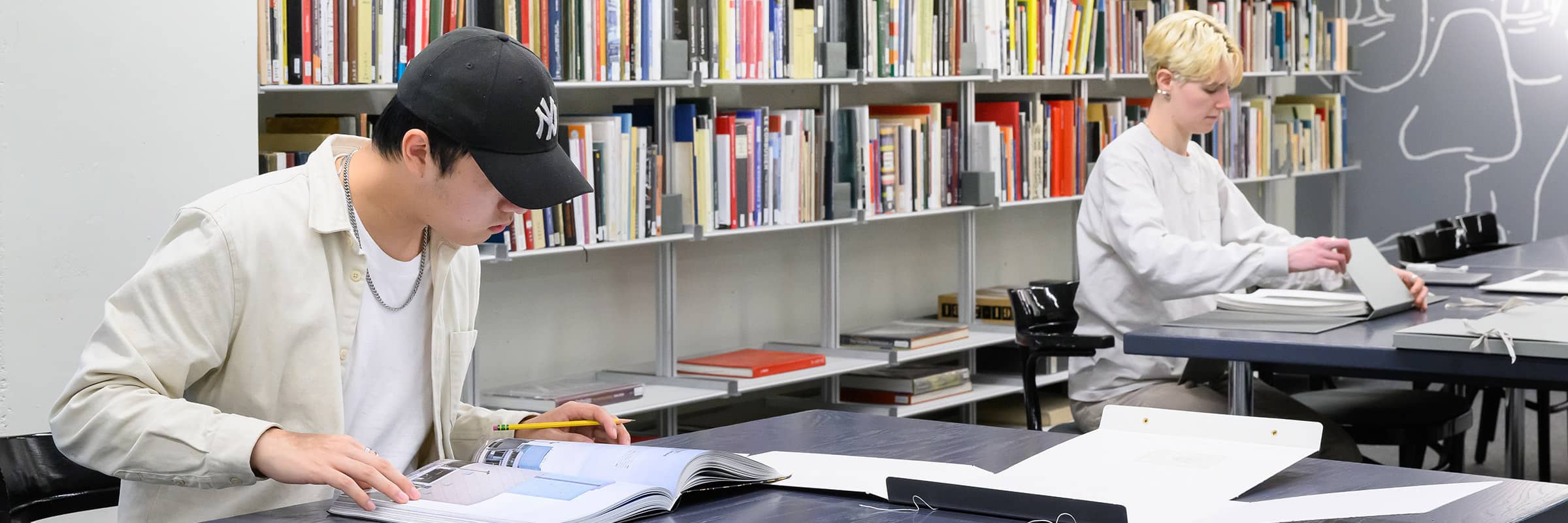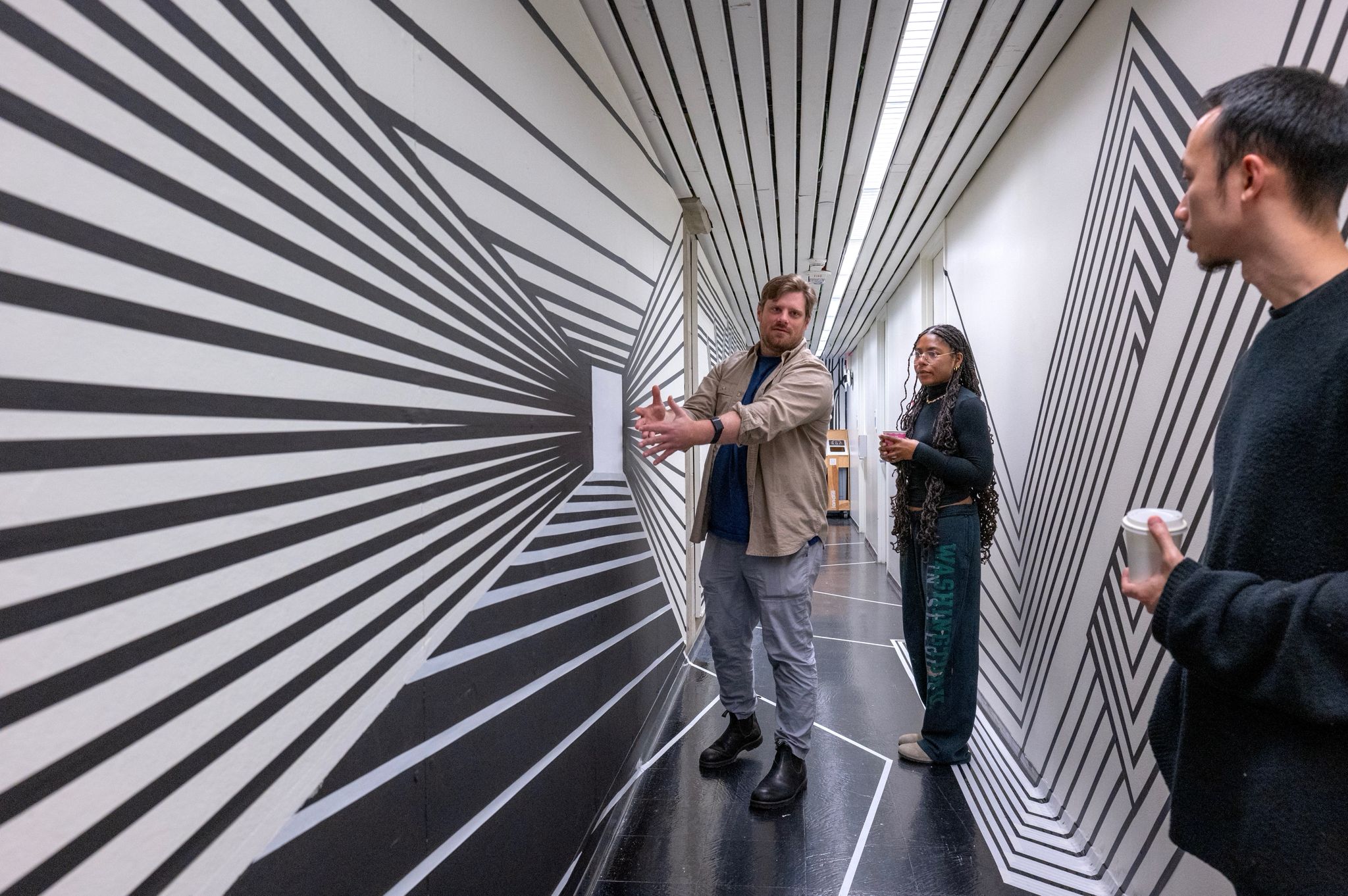Visiting Scholar/Fellow Appointment Process
Location
48 Quincy Street
Suite 414
Cambridge, MA 0
Hours
Monday-Friday
9 a.m.–5 p.m.
Visiting Scholar
A Visiting Scholar is a person with a record of distinguished scholarly achievement who is coming to conduct their own scholarship. Normally, these persons currently hold professorial or senior research appointments at other universities and are on sabbatical or leave under sponsorship of a major grant, such as a Fulbright or Guggenheim.
Appointments are only considered when it is evident that residence in the GSD will be of significant benefit to the research in progress and when the residence of the scholar will benefit scholarship and/or instruction in the Faculty of Design. These appointments are unpaid. No space, staff support, or benefits are available to Visiting Scholars.
Visiting Fellow
A Visiting Fellow is a person with some scholarly or professional achievement beyond the normal scholarly or professional degree who is coming to engage in research or otherwise participate in academic endeavors of the school. Appointments are only considered when it is evident that participation at the GSD will be of significant benefit to research or academic endeavors of the school. Most international fellows applying from abroad are funded by a foundation, government grant, or company.
All international fellows should be certain they can provide evidence of sufficient funding. Visa authorization is contingent upon the certification of funds to cover expenses. These appointments are unpaid. No space, staff support, or benefits are available to Visiting Fellows.
These unpaid academic appointments are governed by policies set forth in the Non-Faculty Academic Appointments Handbook.
GENERAL INFORMATION:
- Visiting Scholars/Fellows receive Harvard IDs and Library privileges
- The faculty sponsor must serve as host and be in residence for the duration of the visit
APPROVALS:
- Visiting Fellow status is not to be used for people who are enrolled in a degree program (doctoral or masters) at another institution. These individuals may pursue special student status through the Admissions Office, bearing in mind that Harvard is no longer able to sponsor student visas for special students (at this time only US citizens or permanent residents can apply for special student status).
- Visiting Fellow status is not to be used for people whose principal activity at GSD will be to support, collaborate or otherwise work on a faculty research project under the direction of the faculty member. Those individuals should be hired as Research Associates and must be paid according to established GSD guidelines.
- Requests for Visiting Scholar and Visiting Fellow appointments are reviewed for approval by the Executive Committee. Faculty are permitted to sponsor not more than one unpaid visiting appointment per year.
- If approved, all visiting appointees must sign the appropriate Harvard University Visitor Participation Agreement
For additional information regarding these types of appointments, please refer to the Non-Faculty Academic Appointments Handbook.
If you would like to recommend a Visiting Scholar or Visiting Fellow, please submit the application below. For questions, please contact Tim Hoffman in Faculty Affairs.
Faculty Leave Policies & Forms
Location
48 Quincy St
Gund Hall, Suite 414
Cambridge, MA 02138
Hours
Monday-Friday
9 a.m.–5 p.m.
Massachusetts Paid Family and Medical Leave (MAPFML)
- MA PFML Summary for Faculty and Academic Appointees (PDF)
- MA PFML Checklist for Faculty and Academic Appointees (PDF)
Leave of Absence Request Forms
Additional Policies
Tenured Faculty Sabbatical Policy Guide (PDF)
GSD Policies Regarding Retired Professors (Research & Emeritus/a Professors) (PDF)
Faculty Benefits
FACULTY BENEFITS
Harvard's Central Faculty Affairs Office
The Office of the Senior Vice Provost for Faculty coordinates efforts to recruit and retain outstanding scholars, advance their research and teaching, and support their work-life balance.
Benefits
The Benefits Office provides customer service, communications, and education to ensure that employees can make the most of their benefits. The Office provides comprehensive health benefits and retirement programs for your long-term financial security.
HARVie & PeopleSoft
Harvard PeopleSoft
self-service allows employees to directly access their compensation and benefits information.
Harvard Information for Faculty (HARVie)
provides access to comprehensive details and sign-up for workshops on your benefits, programs, resources, services, and much more. Explore HARVie
to learn more.
Housing Services
Harvard University Housing offers housing and real estate services to the University’s graduate students, faculty, and employees.
Child Care Services
The University is committed to providing you with access to a wide array of Child Care Resources . Whether you are a new parent or new to Harvard, we encourage you to explore your options.
Wellbeing
Harvard provides a network of wellbeing resources designed to support you in navigating daily challenges and fostering personal growth. With innovative mindfulness courses, a comprehensive Employee Assistance Program (EAP) that provides coaching and counseling, resources for managers, and more, Harvard’s programs offer a holistic approach to wellbeing.
Some of these services are also available to family and household members of benefits-eligible faculty, staff, and union members.
Community & Work / Life Resources
Office for Scholarly Communication
Office for Scholarly Communication spearheads campus-wide initiatives to open, share, and preserve scholarship.
Harvard International Office
Harvard International Office (HIO) provides information related to immigration issues, financial questions, social and cultural differences.
Health Services
Harvard University Health Services (HUHS) is a multi-specialty medical practice exclusively for members of the Harvard community.
Community Support, Non-Discrimination, Rights & Responsibilities
The Office for Community Support, Non-Discrimination, Rights & Responsibilities (CSNDR) works with the Harvard community to foster an environment free from discrimination, interpersonal violence, and the impacts of such harm.
Harvard Community and Campus Life
The Harvard Community and Campus Life continues to reexamine and reshape the missions and programs of offices across the university.
Employee Assistance Program
Harvard University Employee Assistance Program offers free, confidential emotional, and mental health support for employees and their household members, available 24/7. Whether you’re dealing with personal or work-related challenges, Harvard’s Employee Assistance Program provides the help you need.
Leaves of Absence and Forms
-
Faculty Affairs
Teaching at the GSD
TEaching Resources
-
Academic Planning and Innovation
-
Academic Administration, Academic Planning and Innovation, Registrar
-
Academic Administration, Faculty Affairs
-
Academic Planning and Innovation
-
Academic Planning and Innovation
-
Academic Planning and Innovation
-
Academic Administration Business Office
-
Academic Administration Business Office
-
Faculty Affairs
-
Communications
Explore
-
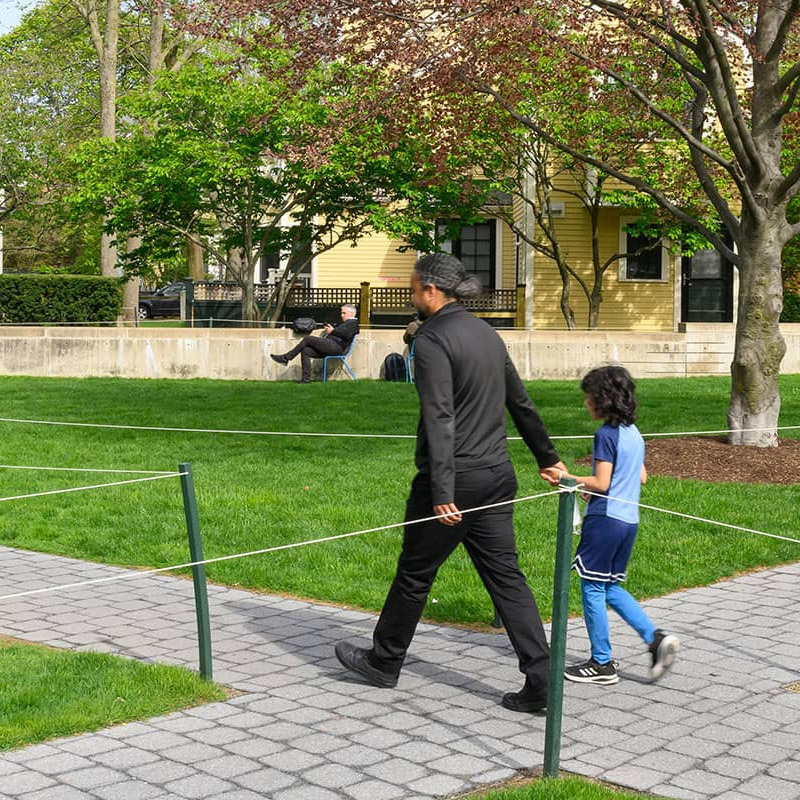
Members of the GSD community are encouraged to review the academic calendar regularly. For any questions, please contact the Office of the Registrar.
-

The GSD campus in Cambridge, Massachusetts includes Gund Hall at 48 Quincy St., 485 Broadway, the Center for Green Buildings & Cities (or House Zero) at 20 Sumner Rd., 7 Sumner Rd., and 40 & 42 Kirkland St.
-
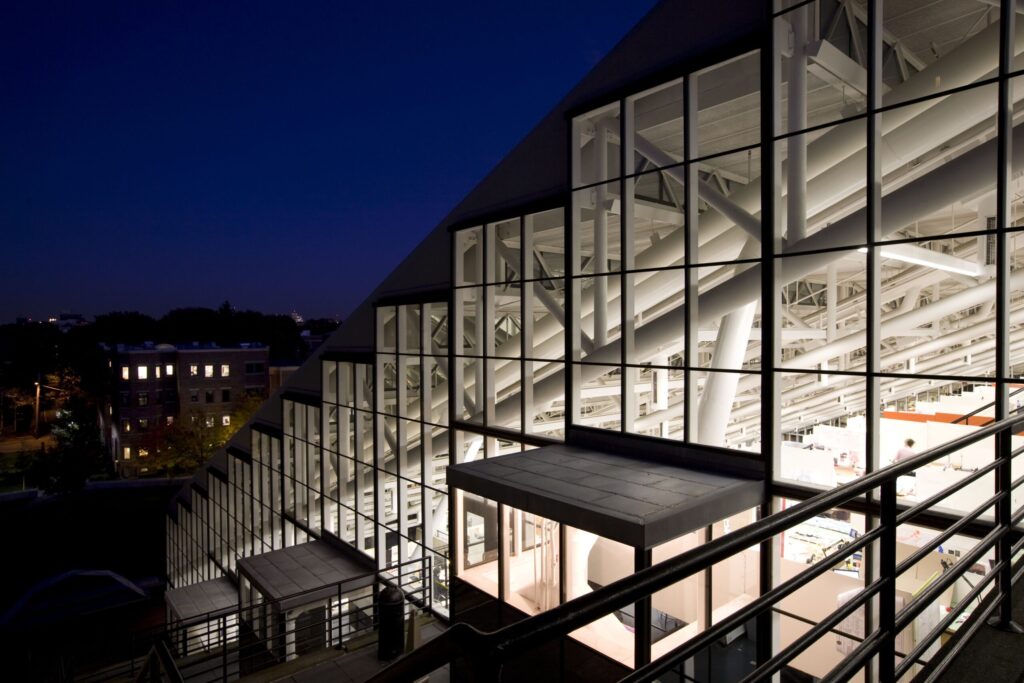
GSD Information Technologies aims to create a versatile, accessible computing environment for GSD community members, supporting design computing at all levels. We offer various services for students’ coursework and independent study, as well as for staff, faculty, and researchers.
-
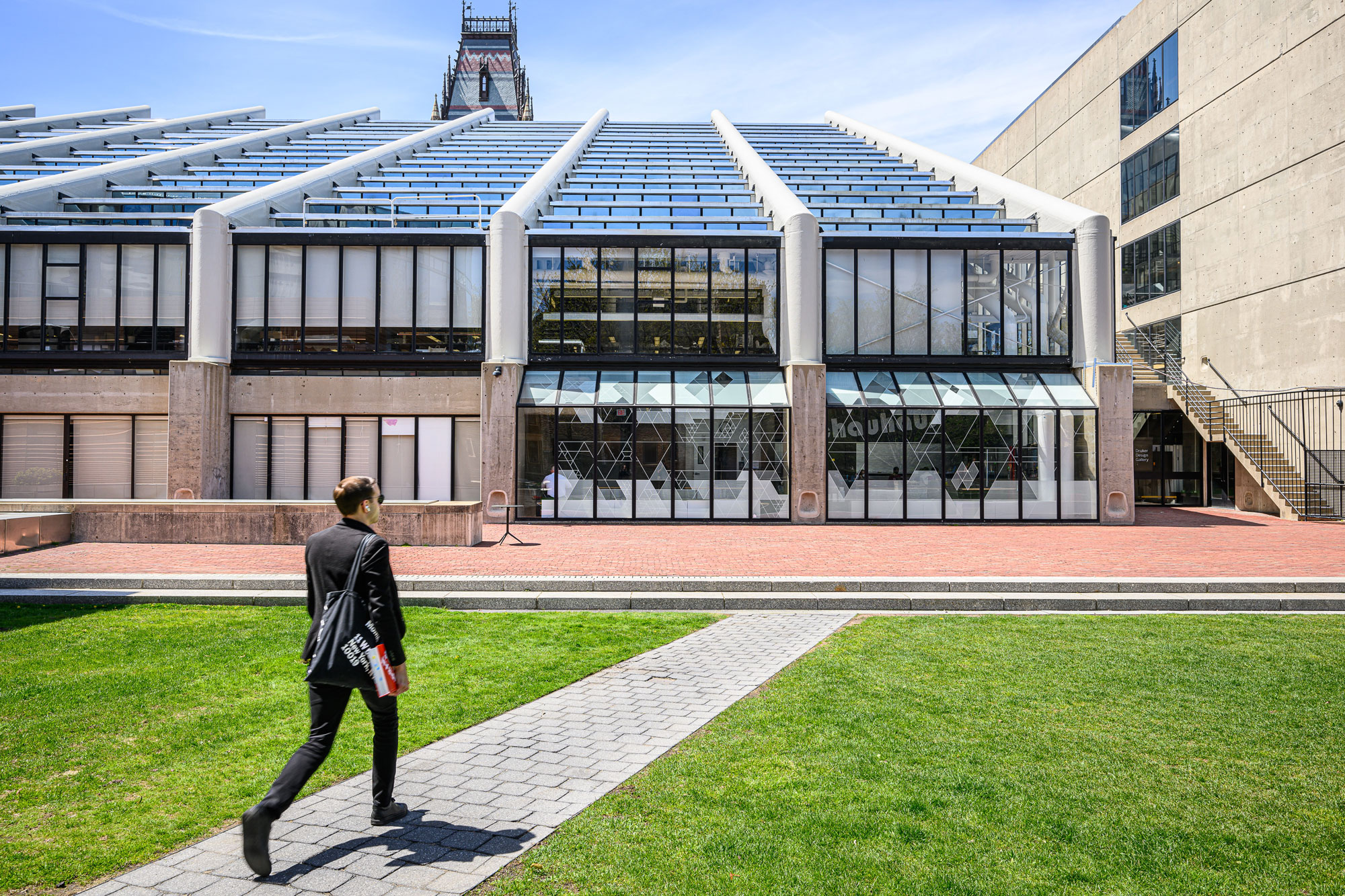
The Facilities and Campus Operations department strives to support the pedagogy of all those that connect with the campus. This resource includes information on how to reserve space at the GSD or submit a Work Order.
-

Investigation of materials, prototyping and testing, physical mock-ups and the application of new fabrication processes is integral to the design culture at the GSD. In support of these pursuits the Fabrication Lab features a wide range of equipment, including: CNC Routers, Milling, Cutting, and Marking Machines; 3D Printers and Scanners; Laser Cutters; Wood and Metal Shop Equipment; and Associated Software.
-
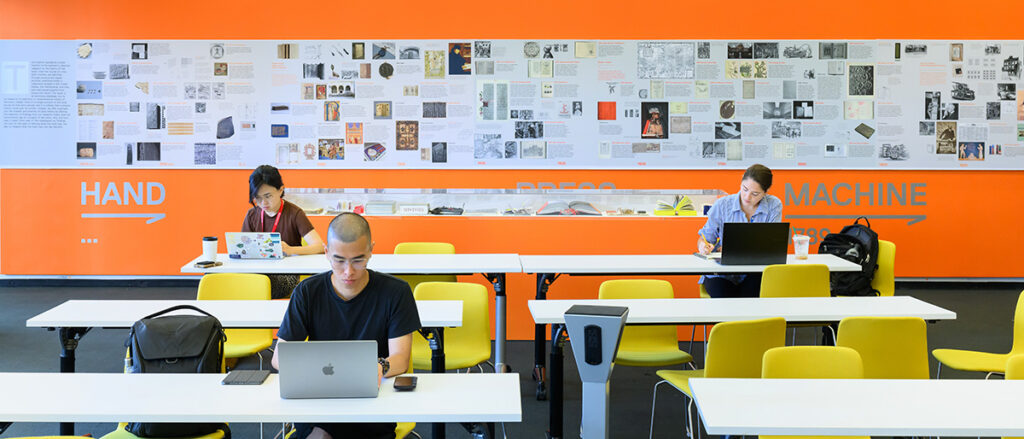
The Frances Loeb Library is the vibrant intellectual hub of the Harvard Graduate School of Design. The library provides support for all your research, teaching, writing, and GIS & geospatial needs. We also have a variety of spaces for your use including two reading rooms and individual and group workspaces.
New FAculty Resources
-
Faculty Affairs
Documents for Download
Research
GSD research
-
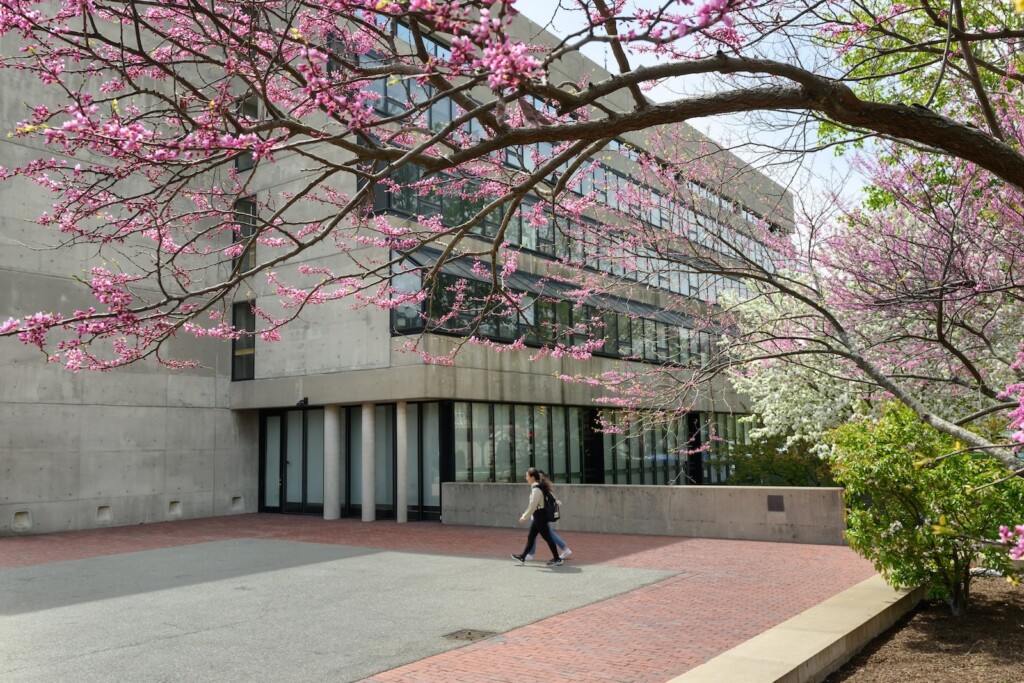
Our research centers foster interdisciplinary collaboration among faculty, students, and industry experts to tackle complex global challenges across architecture, landscape architecture, urban planning, and design studies.
-
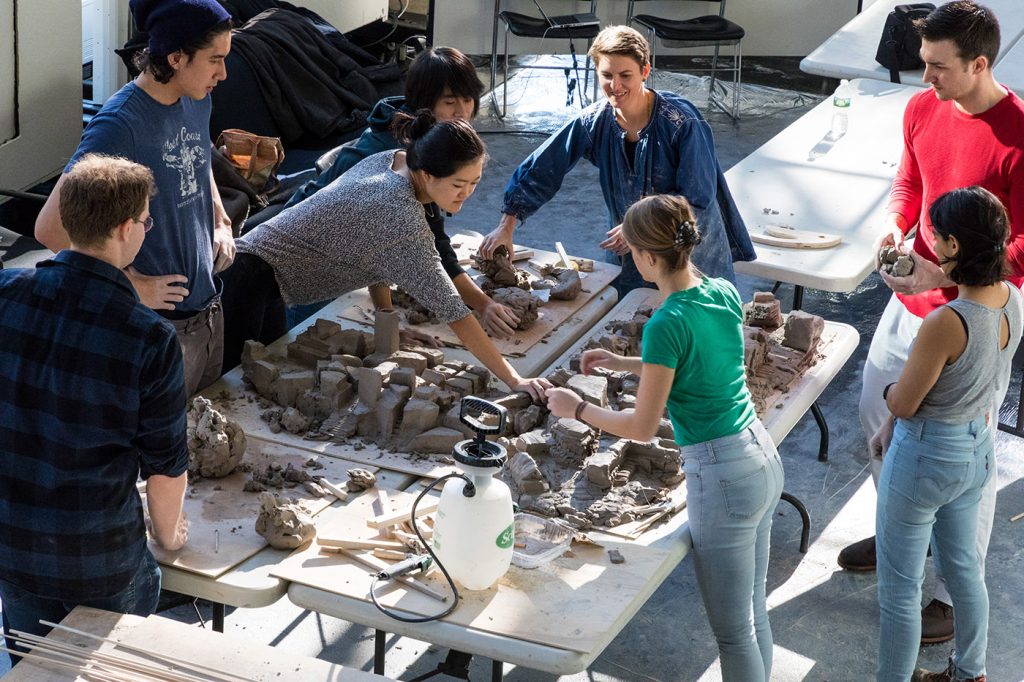
Research initiatives at the Harvard Graduate School of Design serve as dynamic platforms for exploring pressing global issues through the lens of design.
-
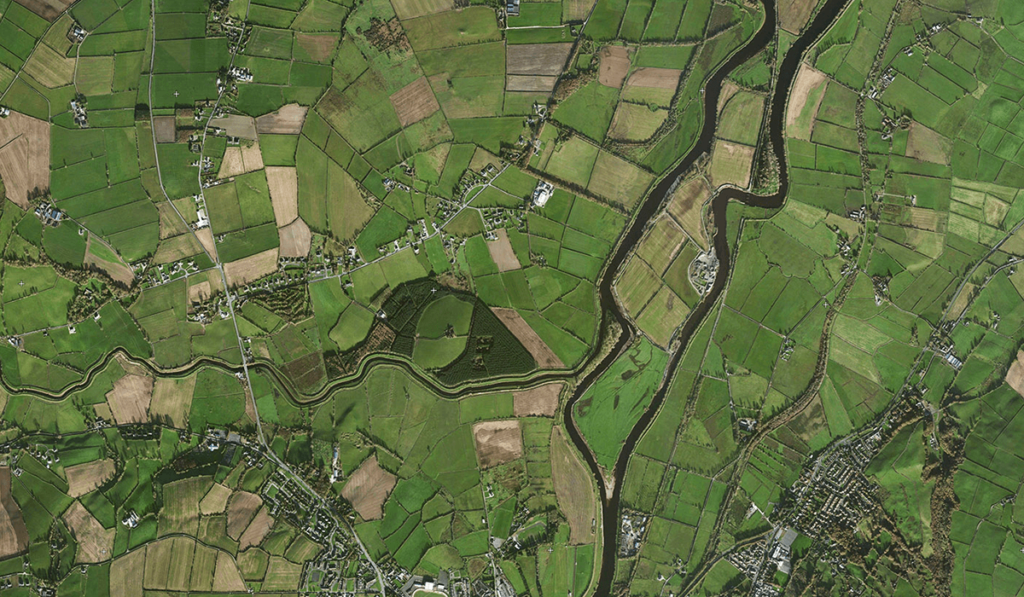
Our groups and labs synthesize theoretical and applied knowledge to produce innovative and speculative research that enables design to be an agent of change in society.
-
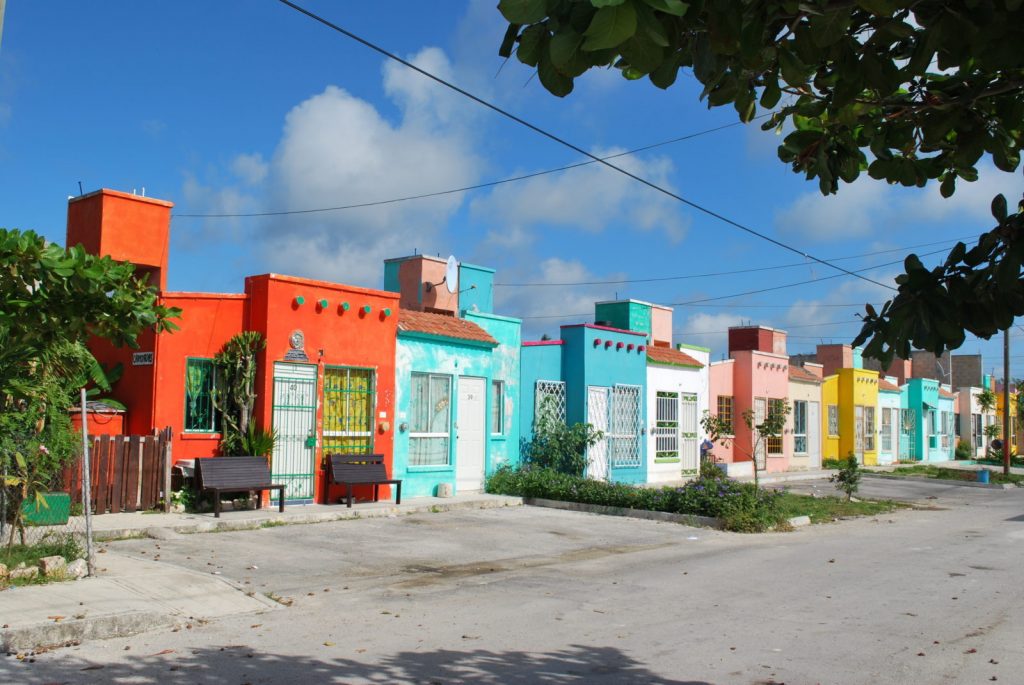
Our projects are creating a critical mass of inquiry and research. Unique in their focus, each builds ties with experts in their fields, with implications for policy, practice, and society at large.
Funding Opportunities
-

The Loeb Fellowship offers a transformative year of study and engagement at the GSD, and a powerful worldwide network of over 450 colleagues. Loeb Fellows are exceptional practitioners whose work is advancing positive social outcomes through the shaping of the built and natural environment in the US and around the world.
-
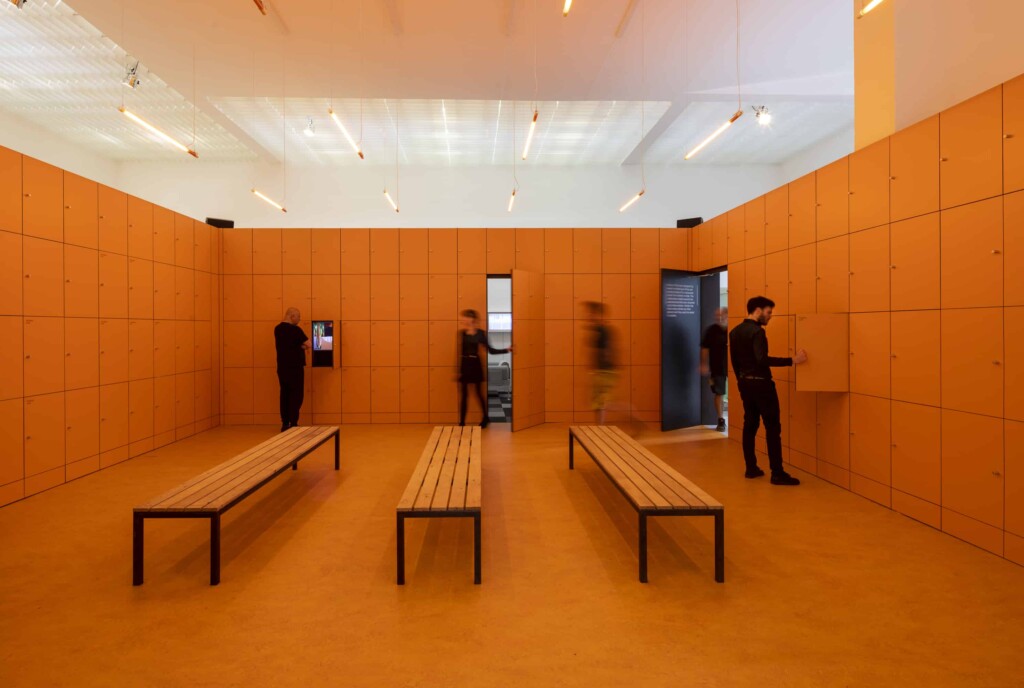
The Wheelwright Prize is an international competition for early-career architects. Winners receive a $100,000 (USD) fellowship to foster intensive, innovative architectural research that is informed by cross-cultural engagement and can make a significant impact on architectural discourse.
-
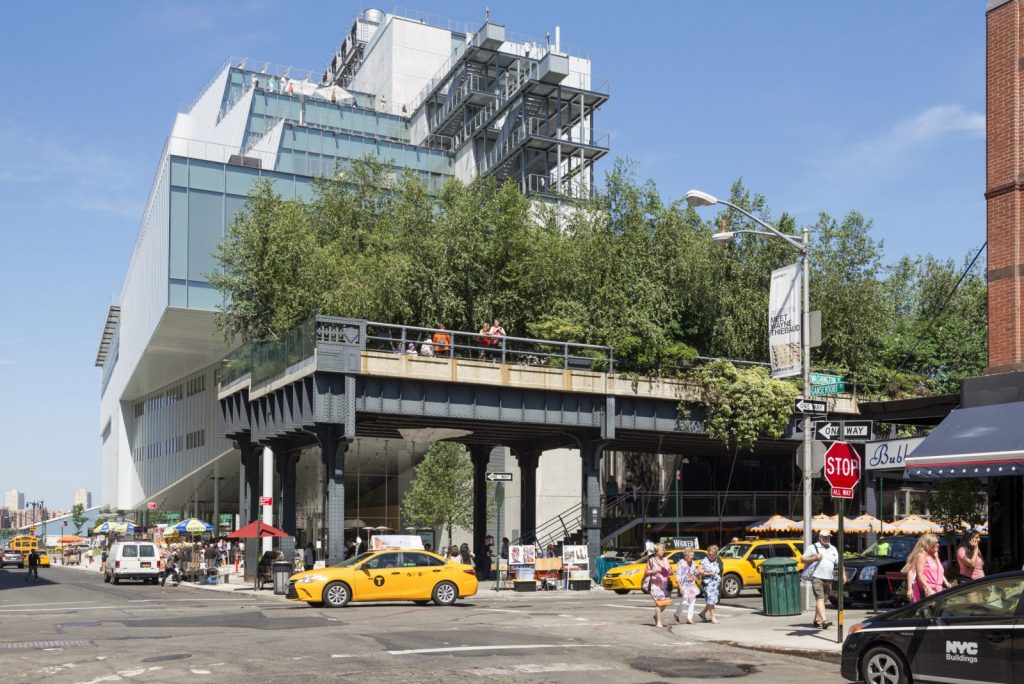
The Veronica Rudge Green Prize in Urban Design is the foremost award recognizing exemplary urban design projects. Projects from around the world are evaluated in terms of their contributions to the public realm and quality of urban life, and must demonstrate a humane and worthwhile direction for the design of urban environments.
Faculty Affairs Resources
Location
48 Quincy Street
Suite 414
Cambridge, MA 02138
Hours
Monday-Friday
9 a.m.–5 p.m.
In this folder:
Faculty Affairs OfficeTeaching Resources
Academic Administration, Academic Planning and Innovation, Registrar
Faculty Affairs
Academic Planning and Innovation
Academic Planning and Innovation
Academic Planning and Innovation
Academic Planning and Innovation
Academic Planning and Innovation, Department of Architecture, Department of Landscape Architecture, Department of Urban Planning and Design
Communications
Our Faculty
Academic Administration, Faculty Affairs
Academic Schedules
Academic Administration, Registrar
Faculty Handbooks and Policies
Academic Administration, Faculty Affairs
Faculty Affairs
Faculty Affairs
Hiring Students
Academic Administration Business Office
Academic Administration Business Office
Visiting Scholar/Fellows
Faculty Affairs
Report a Concern About a Student to Student Affairs
Student Affairs
Harvard Reporting Systems
Community, Impact, and Opportunity
Academic Affairs, Community, Impact, and Opportunity
Student Affairs, Student Life
Faculty Appointments Handbook
Location
48 Quincy Street
Suite 414
Cambridge, MA 02138
Hours
Monday-Friday
9 a.m.–5 p.m.
In this folder:
Faculty Affairs OfficeThe Faculty Appointments Handbook (PDF) is one of three documents that explain policies and procedures relevant to faculty members at the GSD. The others include the Faculty Policies Handbook (PDF), which describes policies and procedures relevant to faculty engagement, employment, and conduct, and the Guidelines for Instruction Handbook (PDF), which describes policies and procedures for course planning, delivery of instruction, departmental and program-related resources, and other aspects of curricular engagement.
For more information, please refer to Faculty Policies, Review/Promotion Process Guidance, and Other Resources.
Faculty Appointments Handbook
Faculty Affairs
Faculty Affairs
A. Voting Faculty Appointments
Faculty Affairs
Faculty Affairs
Faculty Affairs
Faculty Affairs
B. Non-Voting Faculty Appointments
Faculty Affairs
Faculty Affairs
Faculty Affairs
C. Rules Governing Appointment Change of Current Junior Voting Faculty
D. Rules Governing Appointment of Former Junior Voting Faculty
IV. Description of Process for Initial Appointments, Promotions, and Reappointments
Faculty Affairs
Faculty Affairs
Orientation Programs for New Faculty
Location
48 Quincy St
Suite 414
Cambridge, MA 02138
Hours
Monday-Friday
9 a.m.–5 p.m.
Welcome to the Graduate School of Design! For over eighty years, the GSD has pioneered excellence in the practice of design, education, and research.
Each semester the GSD offers orientation events for all new faculty members. Our goal is to welcome you to the GSD and Harvard University community and connect you to the resources you need to make your transition to GSD as smooth as possible.
Please review the information below to learn more details on the orientation sessions and the resources available.
The Faculty Affairs Office is always available to answer any questions that are not covered here, and we encourage you to refer to our Faculty Affairs Office Resource Center for more information on our faculty policies, teaching resources, hiring TAs, benefits, and other work/life resources.
save the dates!
| Orientation Program | Date & Location | Description |
|---|---|---|
| Pre-Term Faculty Orientation Session: Course Prep, Academic & Student Affairs | Thursday, January 8 (10:00a.m.-11:00a.m.) via Zoom | Academic Departments and Student Affairs staff will provide information useful to faculty prior to the start of the term. Topics covered will include creating syllabi, hybrid teaching, course presentations, course budgets, resources for students, and to how to address accommodation requests. |
| Full Faculty Meeting | Wednesday, January 28 (noon–1:30p.m.) Piper Auditorium, Gund Hall or via Zoom | All faculty are invited to attend the first full faculty meeting of the term. |
Start of Term Resources
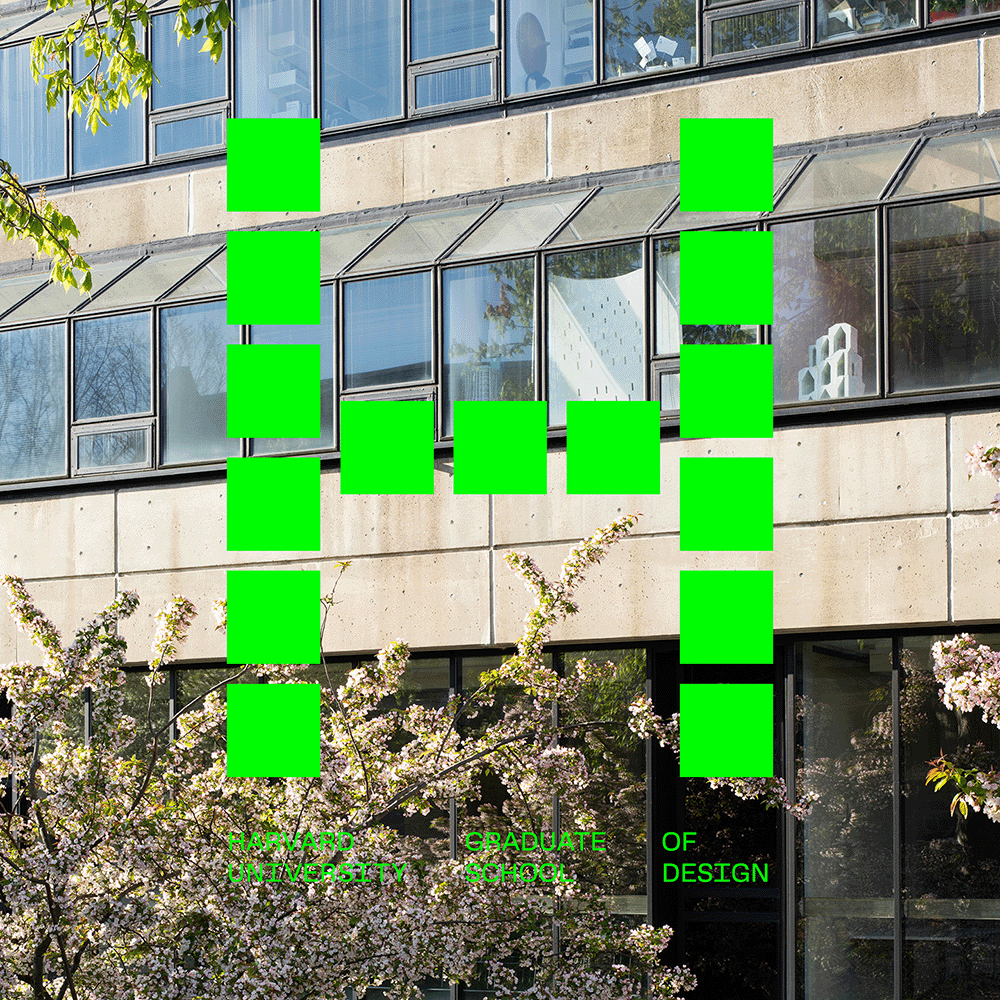
New Faculty Checklist
- If you have arrived on a Harvard-sponsored visa, it is important to submit a HIO registration form as soon as possible. Contact Emmy Ly with any visa-related questions.
- Complete an I-9 (if applicable). Contact Alicia Matthews for assistance.
- Access your GSD/Harvard email by signing into Harvard’s Microsoft 365. This web-based platform is used for Harvard email, calendar, file sharing, and communication apps. As a member of the GSD/Harvard faculty, you are required to regularly access and use your GSD/Harvard Outlook email for any teaching-related and GSD-related business.
- Submit your biography and headshot for your online faculty profile via this form .
- If you are eligible for benefits and have questions, contact the Benefits Office .
Community Values
Achieving the mission of the School requires an environment of trust and mutual respect, free expression and inquiry, and a commitment to truth, excellence, and lifelong learning. Please take a moment to review the GSD’s Community Values Statement.
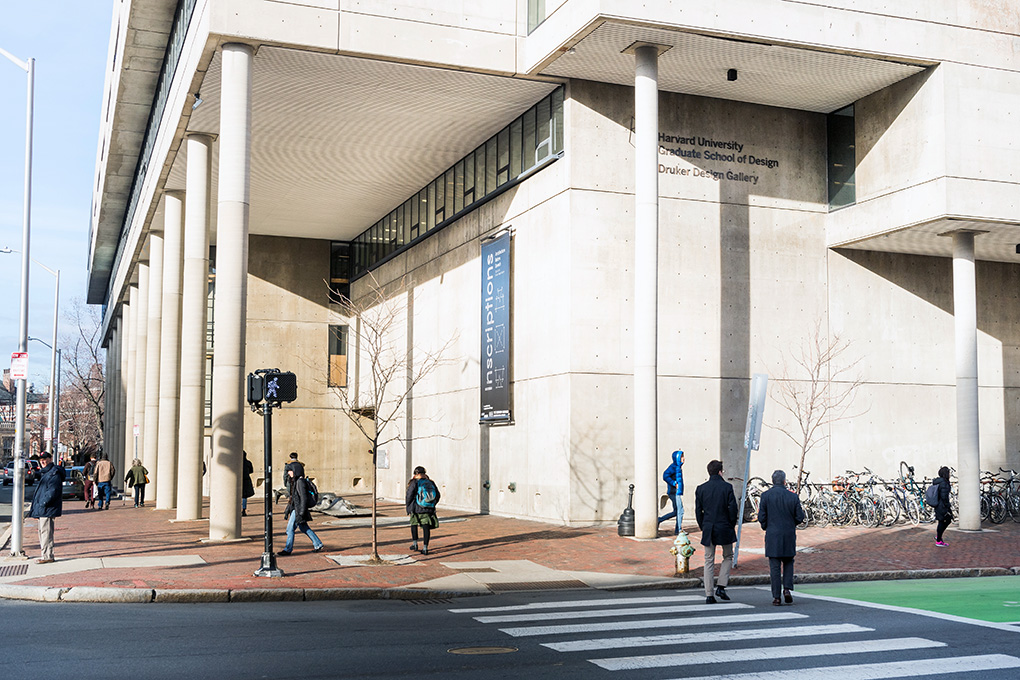
GSD Resources
Canvas
Canvas is the official course management system at Harvard University, supporting educational and administrative course needs.
GSD Now
GSD Now is a virtual gathering place for the GSD community. Explore what’s happening at the school and collaborate with others.
Room Reservations (SERT)
Current GSD Staff, Faculty, Teaching Fellows, Teaching Assistants, and Students can request space online via SERT (Schedule Events, Rooms, and Technology).
Department of Architecture
The Department of Architecture is a unique community, rich in diversity, collaboration, and scholarship through design. Here, students explore today’s most creative design approaches, with an international faculty prominent across the field.
Department of Landscape Architecture
The Department of Landscape Architecture at Harvard is home to the oldest and most distinguished academic program in landscape architecture in the world. Its mission is to advance research and innovative design practices in the natural and built environments, as they intersect with processes of urbanization and the present realities of a changing climate.
Department of Urban Planning and Design
The Department of Urban Planning and Design is home to both professions, offering a professional degree in urban planning and a post-professional degree in urban design. It is also home to the new Master in Real Estate degree.
Frances Loeb Library
The Frances Loeb Library Provides the Graduate School of Design, the larger Harvard University community, and the public with resources and services for design research, teaching, and learning.
Office of Student Affairs
The Student Affairs Office oversees the student experience at the GSD, including enrollment services, student life, accommodations, wellness, and career development.
Office of Community, Impact, and Opportunity
The mission of the GSD’s Office of Community, Impact, and Opportunity is to foster an interconnected community, encourage engagement across difference and empower all members to thrive in their professional, academic, and research pursuits. We support the GSD’s efforts to make a more resilient, just, and beautiful world by creating space for and recognizing multiple perspectives and experiences in our community.
University Updates

In 2024, President Alan M. Garber and Provost John F. Manning established several working groups and task forces. Below please find the final reports addressing important issues affecting our campus and community:
- Presidential Task Force on Combating Anti-Muslim, Anti-Arab, and Anti-Palestinian Bias
- Harvard & the Legacy of Slavery : The first phase of the initiative’s work was to uncover the truth of Harvard’s ties to slavery through deep research guided by a committee of distinguished faculty drawn from across the University. This research provides a strong foundation for our next phase: the process of reckoning and repair.
Harvard Wide Resources
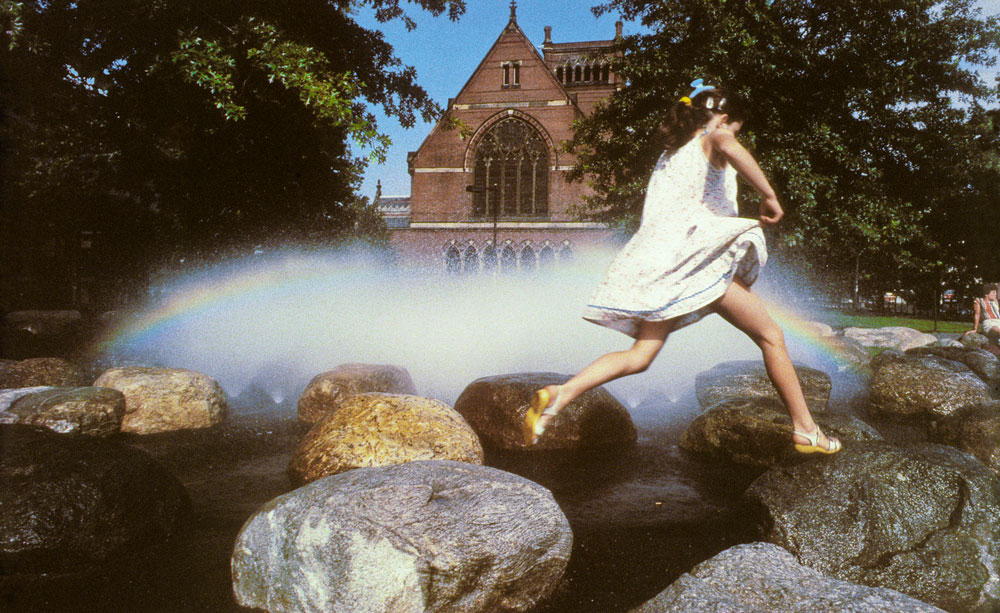
- Harvard University Community and Campus Life works with stakeholders and partners across the University to guide Harvard’s culture toward inclusive excellence.
- MessageMe is Harvard University’s emergency notification system.
- For navigating Life at Harvard, the Campus Map and the Harvard International Office’s Welcome Guide are helpful resources.
- Office of the Vice Provost for Research : The OVPR reviews, develops, and implements Harvard’s research-related policies, as well as the organization and execution of academic research, especially in the sciences.
- The Harvard Federal Credit Union (HFCU) exclusively serves the Harvard community, providing a complete line of services (banking and loans) for all your financial needs.
- Guide to Harvard Terms and Acronyms.
- Harvard Info Center and Tours : Harvard University established the Visitor Center in 1962 as the front door to the University, where students greet visitors from all over the world, answer questions about campus, and provide official tours of Harvard.
- Harvard Police Department : The mission of the Harvard University Police Department is to maintain a safe and secure campus by providing quality policing in partnership with the community.
- Faculty Development: National Center for Faculty Development and Diversity (NCFDD) focuses on skills for thriving in today’s academy, such as strategic planning, productivity, work-life balance, and healthy relationships. Faculty Development hosts an institutional membership with the NCFDD, allowing their resources to supplement those that Schools and other units may provide.
- Harvard’s Central Faculty Affairs Office: Office of the Senior Vice Provost for Faculty.
Hiring RAs, Non Faculty Appointees
Location
48 Quincy Street
Suite 414
Cambridge, MA 02138
Hours
Monday-Friday
9 a.m.–5 p.m.
Is the work to be performed part of a research effort and/or academic in nature?
Yes: Please review the content on this page.
No: If the work is not academic in nature, it requires a staff position. Please contact Human Resources for more information
Do you want to hire a student?
Yes: Please refer to Hiring Students: Information for Faculty
No: If you want to hire a recent graduate/no longer a student, or a new employee who is not affiliated with GSD, Faculty Affairs will assist you.
These are some factors to consider before offering post-graduate employment:
- New graduates are treated as new hires. Tim Hoffman, Assistant Director of Faculty Affairs, will be able to assist to with the hiring process and answer any questions.
- Even if the graduate will continue to work on an ongoing project that was initiated while they were a student, under your direct or indirect supervision, the terms and conditions of employment will change once they are no longer an enrolled student. The rules that will be applied are not specific to GSD; we follow university, state, and federal policies as applicable.
- Please remind your employee(s) that they should not continue working/logging hours once they graduate, unless and until hire paperwork is completed and processed, including confirmation of available funds. This means it is important to begin new hire paperwork well in advance of the graduation date, to allow sufficient time for getting the hire approved and set up. Contact Tim as soon as possible!
- New graduates and other non-student academic employees are hired through Faculty Affairs. Those who have been student RAs will need to transition to employee status, and will no longer file paperwork and timesheets in the Academic Business Office. Pilar Raynor Jordan manages student payroll, but once someone graduates, they can no longer be on a student payroll, and Pilar will no longer be the appropriate point of contact.
- You are responsible for ensuring there is a clear transition for your research assistant, from the student payroll to an employee payroll.
- Most receive NFA (non-faculty academic) appointments as Research Associates, and are paid on the monthly academic payroll. These employees work either full- or part-time, with a monthly salary, and do not report hours.
- Occasionally, new graduates may continue working on a short-term basis (up to 90 days) on a weekly payroll with an hourly rate. As an exception, they may be approved to work for a longer period, if they work less than half time (14 hours/week).
- With all job types there may be other complicating factors such as visa requirements or budget constraints. To avoid problems, it is critically important that you consult us before making an offer of employment, ESPECIALLY IF YOUR RA WILL BE WORKING ON AN Optional Practical Training (OPT) VISA.
- Tim Hoffman is the contact person for hiring research assistants, research associates, post docs, and any other academic workers who are not current students, and not faculty.
- Submit hire forms for NFA appointments (PDF) and temporary/short-term employment (PDF) to Tim Hoffman. Please note that these forms should be completed by the hiring manager (you, the faculty member, or an administrator/designate), not by the prospective employee. Please consult Tim in the Faculty Affairs Office with any questions about this process.
- Questions regarding availability of funding may be referred to Nelson Wong in GSD Finance.
Finally, if you are considering hiring a research associate from outside GSD for academic work/research support, the above policies also apply, and you should contact Tim Hoffman about how to structure the job prior to making a specific offer of employment.
I. Faculty Appointments Handbook Introduction
Location
48 Quincy Street
Suite 414
Cambridge, MA 02138
Hours
Monday-Friday
9 a.m.–5 p.m.
The Graduate School of Design educates leaders in design, research, and scholarship to make a resilient, just, and beautiful world. To succeed in its mission, the GSD must develop an academic community of excellence. The Faculty Appointments Handbook describes faculty searches, promotions and reappointments, policies and procedures, approved by the Office of the Provost at Harvard University, for individuals who fill faculty positions in the school. The Handbook is intended to complement and extend university policies and, should conflicts arise, university policies shall govern.
The Faculty Appointments Handbook is one of three documents that explain policies and procedures relevant to faculty members at the GSD. The others include the Faculty Policies Handbook , which describes policies and procedures relevant to faculty engagement, employment, and conduct, and the Guidelines for Instruction Handbook (PDF), which describes policies and procedures for course planning, delivery of instruction, departmental and program-related resources, and other aspects of curricular engagement.
The total number of positions on the Faculty of Design and, in particular, the balance between senior and junior voting faculty positions are largely governed by the academic requirements of the school and the financial resources available. The GSD intends to select the best available person to fill each position, whether from inside or outside the school. If the best available person to fill a position does not meet the standards of excellence sought for the faculty, the school generally considers it better to leave the position unfilled.
The school seeks to appoint and promote individuals who are highly effective teachers as well as creative and productive scholars and/or practitioners. Individuals are appointed to the voting faculty or the non-voting faculty. Junior and senior positions on the voting faculty are filled through searches for external candidates, promotions of internal candidates, and reappointments of internal candidates.
Revised July 2025
GSD-Faculty-Appointments-Handbook (PDF Version)
